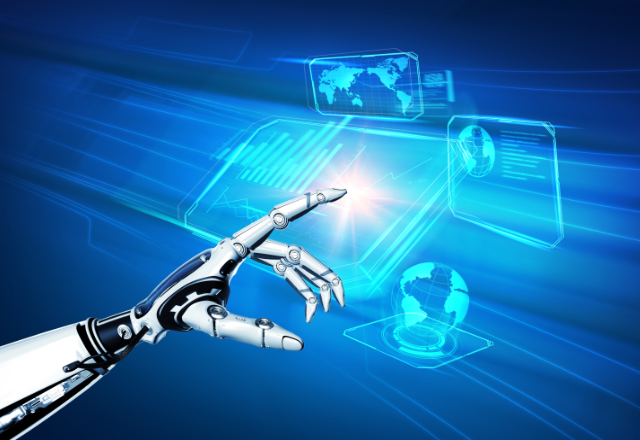

In today’s rapidly evolving technology landscape, artificial intelligence (AI) has become a transformative force with the potential to revolutionize various industries.
The term "artificial intelligence" (AI) is most commonly used to refer to systems that operate through machine learning consulting. Artificial intelligence refers to systems or computers that mimic human intelligence to perform tasks and can evolve and enhance themselves based on the information they receive.
One-size-fits-all approaches to education and training are outdated. Regardless of industry, people use different learning processes and may retain information in different ways. When AI is used in training sessions, plans can be developed that take into account employees’ different learning styles.
The AI-powered platform is able to analyze an individual’s learning style, preferences, strengths and weaknesses. By leveraging this data, AI can tailor the learning experience to each learner’s unique needs, which may depend on their learning speed, age, gender and demographics. This increases engagement and increases learning efficiency as individuals can focus on areas for improvement and advancement at their own pace.
In addition, since an artificial intelligence learning platform can be built to save learning materials, training videos, and employee preferences, companies can provide training courses on demand. This type of learning platform allows management to track employee progress. Artificial intelligence can also be combined with VR and AR technologies to create immersive and interactive learning experiences. VR simulations can provide realistic scenarios for practice and skill development, while AR can provide real-time guidance and information, enhancing hands-on learning and performance support.
The integration of artificial intelligence and education is reshaping the way content is delivered, making complex subjects easier to understand. With the help of natural language processing (NLP), AI can simplify complex concepts and act as a personal tutor, translating jargon into simplified explanations.
In addition, AI’s real-time language translation capabilities break down global language barriers, allowing learners around the world to access courses and resources in their preferred language. This not only promotes inclusivity but also explores different perspectives. Artificial intelligence has the potential to tailor content to different learning styles and abilities, further enhancing inclusivity and making education adaptable and personalized.
When using artificial intelligence in learning and development, learning management system (LMS) data can be leveraged. This data can be used to obtain feedback on employee performance and other analytics, providing a range of insights into corporate learning and development efforts. These details can be used to measure the effectiveness of learning content, how it can be improved, and identify employee learning patterns and techniques while charting trends. This data-driven approach enables teachers and learning and development professionals to make informed decisions about curriculum adjustments, content updates, and teaching methods.
In the dynamic landscape of workforce development, artificial intelligence becomes a powerful ally in addressing skills gaps within organizations. Through sophisticated data analysis, AI can quickly and accurately pinpoint areas where employees lack specific skills critical to their role. This real-time insight enables organizations to make strategic decisions about learning and development initiatives.
By recommending tailored training courses and learning paths, AI helps align the learning journey with the precise skills required. This transformative process ensures that career growth is not just a blind attempt, but a guided trajectory that improves individual performance and overall organizational capabilities.
Traditional methods of assessing skills often fail to accurately assess an individual’s abilities. AI can analyze not only the final output, but also an employee’s problem-solving strategies, critical thinking skills, and decision-making processes, providing a more comprehensive and objective assessment of skills. This holistic assessment provides a deeper understanding of a learner’s proficiency.
Artificial intelligence can free learning and development professionals from routine administrative tasks, allowing them to focus on more strategic aspects of their role. For example, chatbots can provide instant support to learners, answering queries and providing guidance 24/7. Additionally, AI-driven systems can automatically create assessments, quizzes, and training materials, saving teachers valuable time.
Research has also found that instant feedback can deepen learners’ understanding, consolidate knowledge and correct mistakes instead of repeating them. Research shows that students who receive immediate feedback can correct many of their initially incorrect answers and receive higher revised scores than students who receive delayed or no feedback.
Many tools go a step further and offer digital mentors available 24/7. It may sound futuristic, but AI is already being deployed in apps, using chatbot software to guide language learners through language learning to great effect.
For the foreseeable future, artificial intelligence is more likely to augment the capabilities of human trainers rather than replace them entirely. The unique qualities that human trainers bring to the learning experience remain invaluable, especially in areas that require emotional intelligence, adaptability, and interpersonal skills. Collaboration between AI and human trainers has the potential to create a comprehensive, effective learning environment that meets a wide range of learner needs. With the right investment in AI technology, the entire learning and development process for both employees and employers can be vastly improved.
The above is the detailed content of Seven ways artificial intelligence impacts learning and development. For more information, please follow other related articles on the PHP Chinese website!
 Application of artificial intelligence in life
Application of artificial intelligence in life
 What is the basic concept of artificial intelligence
What is the basic concept of artificial intelligence
 How to use math.round function
How to use math.round function
 How to write batch script bat
How to write batch script bat
 Solution to Google Chrome not working
Solution to Google Chrome not working
 How to unlock android permission restrictions
How to unlock android permission restrictions
 A complete list of CAD shortcut key commands
A complete list of CAD shortcut key commands
 Skills required for front-end development
Skills required for front-end development




